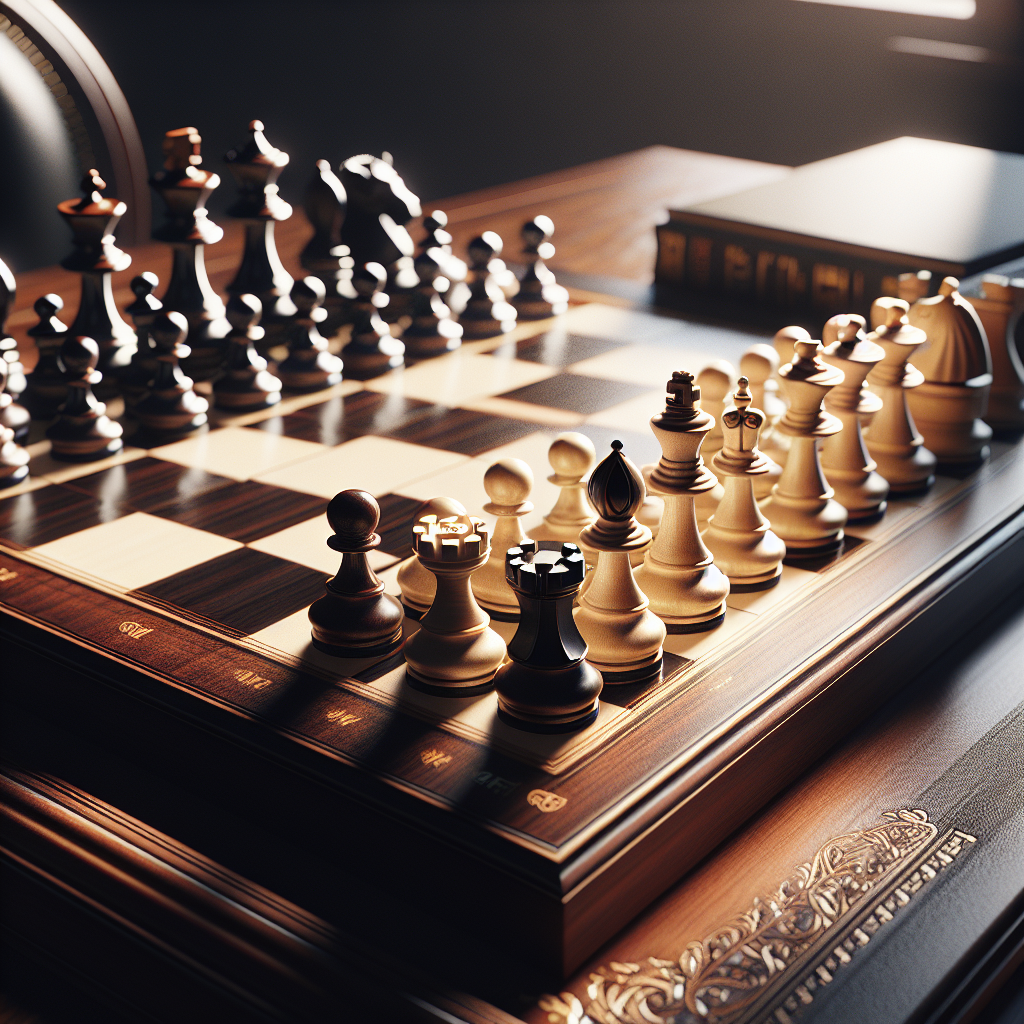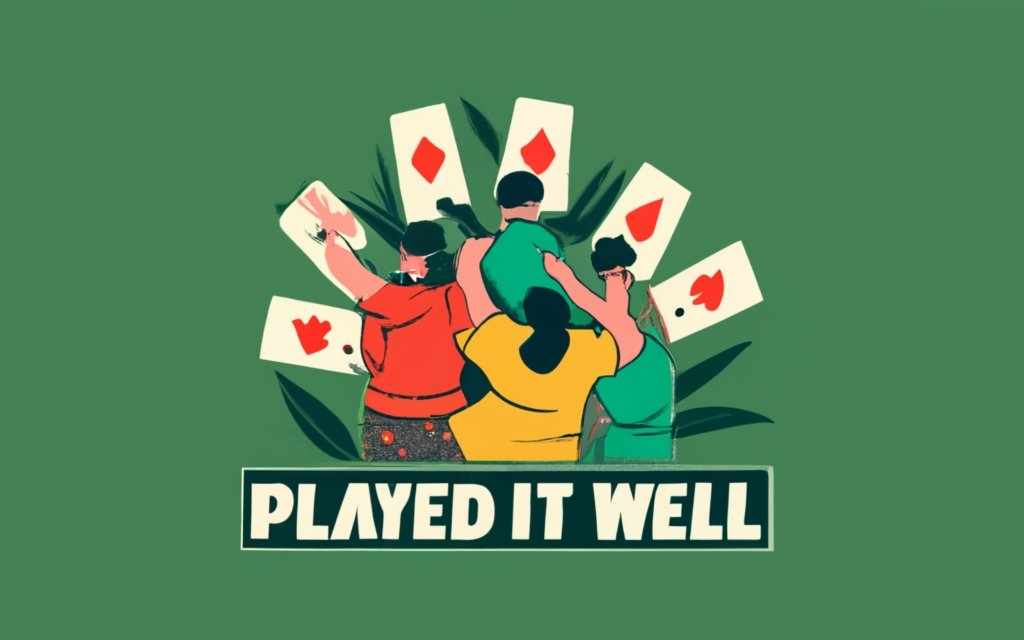So, you’re probably wondering how you can effectively plan for the future, right? Well, let me introduce you to “Strategic Games for Future Planning” – a game-changing approach to anticipating and preparing for what lies ahead. These innovative thinking-ahead games are designed to challenge your strategic mind, helping you develop the skills to navigate the uncertainties of tomorrow. By immersing yourself in strategic gameplay, you’ll gain the foresight and decision-making abilities needed to stay ahead of the curve in a rapidly evolving world. Say goodbye to reactive planning and hello to proactive strategizing with these engaging and thought-provoking games.
Strategic Games for Future Planning
Introduction
In today’s fast-paced world, planning for the future has become more important than ever. Whether you’re an individual looking to achieve personal goals or a business trying to navigate through the complexities of a volatile market, strategic thinking and planning are vital. While there are various techniques and tools available for future planning, one innovative approach that has gained popularity is strategic games. These games not only provide an enjoyable way to pass the time but also serve as a valuable tool for enhancing strategic thinking and decision-making skills. In this article, we will explore the importance, benefits, and challenges of strategic games for future planning, as well as discuss some popular games and case studies that highlight their potential.
Importance of Strategic Games for Future Planning
Strategic games offer a unique opportunity to simulate real-world scenarios and challenges, allowing individuals and organizations to develop crucial skills for future planning. By engaging in these games, you become an active participant in making decisions, analyzing consequences, and evaluating potential risks. This hands-on experience enables you to understand the complexities of strategic decision-making and trains your mind to think critically and creatively. Moreover, these games provide a safe environment to experiment with different strategies and learn from the outcomes without bearing the actual consequences. This ability to practice and refine your planning skills can be immensely valuable in preparing for the future.

This image is property of images.unsplash.com.
Benefits of Strategic Games for Future Planning
-
Cultivating Strategic Thinking: Strategic games promote strategic thinking by requiring you to analyze information, anticipate outcomes, and make informed decisions. These games challenge you to consider various factors and evaluate their impact on your desired goals. Regularly engaging in strategic games can enhance your ability to think strategically and apply this skill in real-life situations.
-
Developing Problem-Solving Skills: Future planning often involves overcoming obstacles and finding creative solutions. Strategic games provide numerous opportunities to sharpen your problem-solving skills by presenting you with complex scenarios and encouraging you to explore different approaches. By practicing problem-solving in a controlled and engaging environment, you can improve your ability to tackle challenges effectively.
-
Enhancing Decision-Making Abilities: Making well-informed and timely decisions is crucial for successful future planning. Strategic games require you to make decisions under pressure, considering multiple variables and their potential consequences. By repeatedly engaging in such games, you can refine your decision-making abilities and learn to make choices that align with your long-term objectives.
-
Team Collaboration and Communication: Many strategic games involve teamwork and require effective communication and collaboration. Future planning often involves working with others to achieve common objectives. By playing these games, you can build vital teamwork skills, learn to effectively communicate ideas, and understand the importance of working together towards a shared vision.
-
Increased Adaptability: The future is uncertain, and plans often need to be adjusted as circumstances change. Strategic games expose you to dynamic environments where you must adapt your strategies based on evolving conditions. This adaptability learned from the games can better equip you to embrace change and respond effectively to unforeseen challenges in your future planning endeavors.
Factors to Consider When Choosing Strategic Games for Future Planning
While the benefits of strategic games for future planning are evident, choosing the right game is essential to maximize their effectiveness. Consider the following factors when selecting strategic games:
-
Relevance: Look for games that align with your specific future planning goals. Whether you are focused on personal development or strategic business planning, choose games that simulate scenarios that closely resemble the challenges you anticipate.
-
Complexity: Assess the complexity level of the game. While challenging games can be beneficial for developing advanced strategic thinking skills, overly complex games can be overwhelming and discourage effective learning. Strike a balance by selecting a game that is engaging yet allows for progressive skill development.
-
Interactivity: Seek games that encourage active participation and engagement. Games that involve decision-making, problem-solving, and collaboration are more likely to facilitate the development of desired skills. Avoid games that are purely based on chance or lack opportunities for strategic thinking.
-
Feedback Mechanism: Look for games that provide feedback on your performance. Constructive feedback allows you to identify areas for improvement and refine your strategies. Games that offer detailed analysis of your decisions and outcomes can be particularly valuable for enhancing future planning skills.

This image is property of images.unsplash.com.
Popular Strategic Games for Future Planning
-
Chess: Chess is one of the oldest and most well-known strategic games. It requires players to plan multiple moves ahead, analyze the opponent’s strategies, and adapt their approach accordingly. Playing chess can enhance critical thinking, visualization, and the ability to consider long-term consequences.
-
Settlers of Catan: Settlers of Catan is a board game that involves resource management, negotiation, and strategic planning. Players must make decisions regarding resource allocation, expansion, and cooperation with other players. This game promotes strategic thinking and strengthens decision-making and collaborative skills.
-
Civilization VI: Civilization VI is a turn-based video game where players build empires, manage resources, conduct diplomacy, and engage in warfare. It challenges players to consider geopolitical dynamics, develop long-term strategies, and adapt to changing environments. Civilization VI is a popular choice for those seeking a comprehensive strategic gaming experience.
Case Studies of Successful Future Planning through Strategic Games
-
SimCity: The SimCity franchise is a renowned series of city-building simulation games. One notable case study involved a city planner in Maryland who used SimCity to develop strategies for urban development and sustainability. By experimenting with different scenarios in the game, the planner was able to test the impact of various policies and make informed decisions for real urban planning projects.
-
The U.S. Military: The U.S. military has incorporated various strategic games into their training programs. For example, the Pentagon uses the wargame “Millennium Challenge” to simulate potential conflicts and evaluate strategies. This immersive gaming experience allows military leaders to test different approaches and identify effective strategies for future planning and decision-making.

This image is property of images.unsplash.com.
Tips for Effective Future Planning using Strategic Games
-
Set Clear Objectives: Before playing a strategic game, define the specific skills or areas you want to focus on in your future planning. Setting clear objectives will help you stay focused and make the most out of your gaming experience.
-
Reflect and Analyze: After each gaming session, take time to reflect on your decisions, outcomes, and the strategies employed by other players. Analyze the strengths and weaknesses of your approaches and identify areas for improvement.
-
Experiment and Innovate: Don’t be afraid to experiment with different strategies and approaches in the game, even if they seem unconventional. Strategic games provide a safe space to test ideas and push boundaries. Embrace innovation and explore new ways to achieve your goals.
-
Seek Feedback and Collaboration: Engage with other players, join online forums, or participate in multiplayer games to gain diverse perspectives and receive constructive feedback. Collaborating with others can expand your strategic thinking and offer valuable insights.
-
Transfer Learning to Real-Life: Regularly connect the skills and strategies acquired in strategic games to real-life situations. Reflect on how the skills you developed can be applied to your personal or professional future planning. Consistently practicing this transfer of learning will enhance your overall strategic thinking abilities.
Challenges and Limitations of Strategic Games for Future Planning
-
Limited Real-World Context: While strategic games can simulate various scenarios, they may not perfectly mirror real-world complexities. External factors, such as political dynamics or economic changes, may significantly impact future planning, and these elements may not be fully represented in games.
-
Overemphasis on Competition: Many strategic games focus on competition rather than collaboration. While competition can be valuable for developing specific skills, the ability to work collaboratively is also crucial for effective future planning. Supplementing competitive games with cooperative gameplay can help address this limitation.
-
Skills Transferability: While strategic games can enhance specific skills related to future planning, there is a concern about whether these skills easily transfer to real-life situations. The ability to apply learned strategies in complex real-world scenarios may require additional training and experience beyond the gaming environment.

Future Trends in Strategic Games for Future Planning
As technology continues to evolve, the future of strategic games for future planning looks promising. Here are some anticipated trends:
-
Virtual Reality (VR): Virtual reality is expected to revolutionize the gaming industry, providing an immersive and realistic experience. VR-based strategic games could enable users to navigate through virtual environments, making future planning even more engaging and interactive.
-
Artificial Intelligence (AI): The integration of AI in strategic games could enhance the realism and complexity of game simulations. AI-powered opponents could provide a more challenging experience and adapt to players’ strategies. This advancement would further sharpen future planning skills, as players engage with increasingly intelligent virtual counterparts.
-
Online Multiplayer Collaboration: Collaborative gameplay is likely to become more widespread. Online multiplayer modes that encourage teamwork and cooperation in future planning scenarios would allow players to connect with like-minded individuals globally, facilitating knowledge sharing and enhancing strategic thinking.
Conclusion
Strategic games offer a unique and engaging approach to future planning. By promoting strategic thinking, problem-solving, and decision-making skills, these games provide valuable training grounds for individuals and organizations alike. Chess, Settlers of Catan, and Civilization VI are among the popular strategic games known for their ability to develop these essential skills. Case studies of successful implementation in real-world scenarios have further demonstrated the potential of strategic games for future planning. However, it is crucial to consider factors such as relevance, complexity, interactivity, and feedback mechanisms when selecting games. While strategic games have limitations and challenges, ongoing technological advancements, such as virtual reality and artificial intelligence, offer exciting opportunities for the future of strategic gaming. By adopting these games as tools for effective future planning, individuals and organizations can strengthen their strategic capabilities and navigate the complexities of an ever-changing world.






